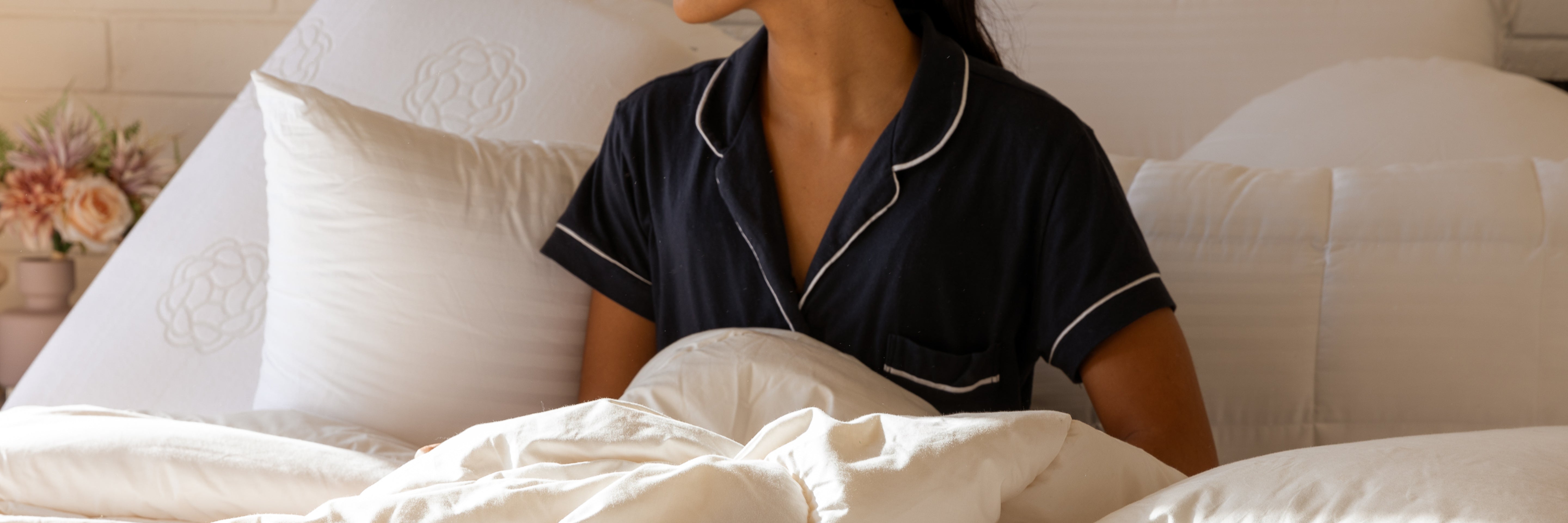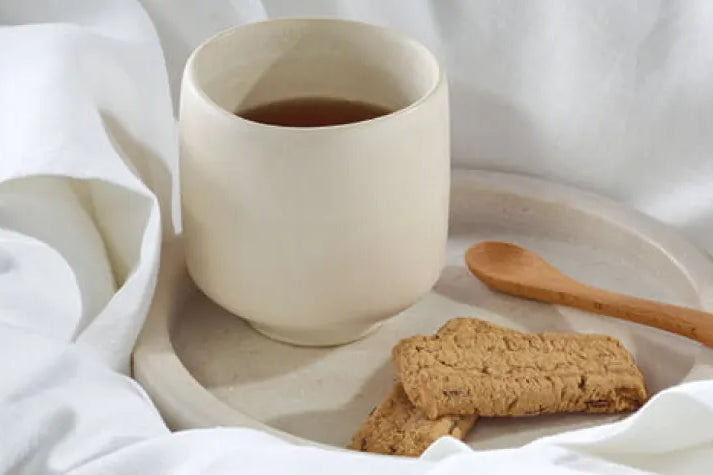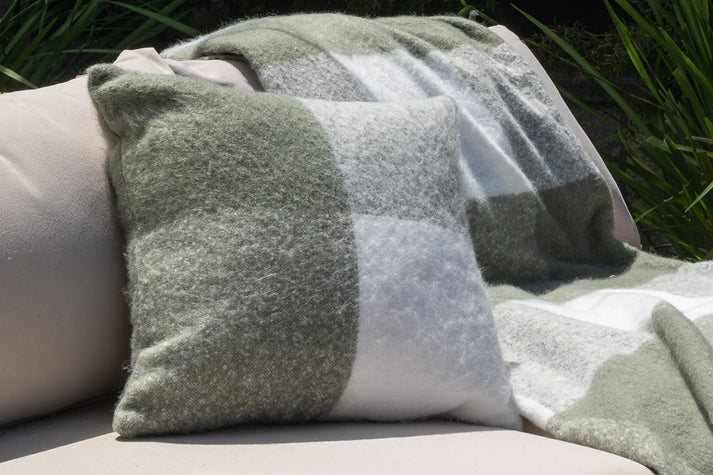
Tips for a better night’s sleep
Getting a good night's sleep is essential to our health and happiness. Sleep helps with memory, hormone regulation, and immunity, so when we're not getting enough, we're more susceptible to getting sick and being in a bad mood!
If you find it hard to fall asleep at night, you may be sending your body mixed signals without even realising!
Sleep hygiene is a term that is used to refer to healthy habits, behaviours and environmental factors that can be adjusted to help you get a better night’s sleep.
Many common night-time habits stimulate our brain and tell it to stay awake when we are getting ready to go to bed, but there are many daytime habits that can help get your body into the right rhythm, too.
Read on for some ideas that you can practise daily that will help your body and mind wind down and prepare you for the perfect night’s sleep.
DAY TIME HABITS
- Wake up at the same time each morning. This will keep your routine consistent and keep your body clock in check.
- Make your bed. Studies have found that most people who turn down their beds each day sleep better at night. Depending on your sleep preferences, you'll need different bedding to suit your own personal sleep style.
- I’m a hot sleeper: The Thermal Balancing Range uses Outlast temperature regulating textiles to store and release heat as you need it, keeping you snoozing soundly.
- I have allergies: The Microfibre Mattress Topper and Healthy Fibre Quilt are BioFresh treated to support an allergen free night’s sleep. Add a Coral Fleece Mattress and Pillow Protector for additional protection against dust-mites, mildew and other common allergy triggers.
- I prefer all-natural: Wool is a naturally breathable fibre that has the unique ability to regulate your body temperature. The Wool Quilt, Wool Blend Pillows and Premium Reversible Wool Underlay provide natural softness for a comfortable night’s sleep.
- Wash your sheets. You should wash your sheets at least once every two weeks, and if you're a sweaty Betty, share your bed with a pet, or sleep in a hot and humid climate, you'll want to increase that to once a week! Washing your bedding regularly helps prevent dust mites and body oils from building up and promotes better sleep. Studies have found that most sleepers are more excited to go to bed when they have freshly scented sheets!
- Avoid caffeine after midday. Caffeine stimulates the brain and gives us a much-needed kick in the mornings to get going, but it can hang around in our system long after we’ve had that delicious hit. Avoiding caffeine later in the day will ensure it’s out of your system when it’s time to hit the hay.
- See the sun. Spending some time outside during the day will help your body work out when it’s daytime and when it’s nighttime.
- Move your body. Getting at least 30 minutes of exercise a day is not only great for your physical health, but your mental health too. Exercise has been shown to boost the quality and duration of sleep.
NIGHT TIME HABITS
- Go to bed at the same time each evening. This will keep your routine consistent and keep your body clock in check.
- Keep your room cool, dark and quiet. Your sleep environment plays a huge part in how easy it is to fall asleep. If we’re too hot or the room is too bright it’s going to be more difficult to fall asleep.
- Use warm, soft lighting before bed. Bright lights signal to your brain that it’s awake time. Warm, soft lighting can help to train your brain that it’s getting close to bedtime, leading to falling asleep much quicker. Try using a lamp instead of your main lights.
- Avoid technology before bed. Phones and TV use bright blue lighting that our brain associates with day time. Switch off your devices at least an hour or two before bed to help wind down.
- Go to bed feeling fresh and clean. A warm shower or bath can help us relax and unwind after a long day. It’s the perfect way to de-stress and means we’re relaxed by the time we slip beneath the sheets.
- Avoid exercise at night. Moving your body during the day can aid with sleep, but when we exercise later it can be hard for us to wind down. Keep your activity during daytime hours.
- Avoid food before bed. Eating before bed means we are digesting food as we are trying to get to sleep. Keep dinner time and snacks at least 2 hours before bedtime so that your body has time to digest before hitting the hay.



